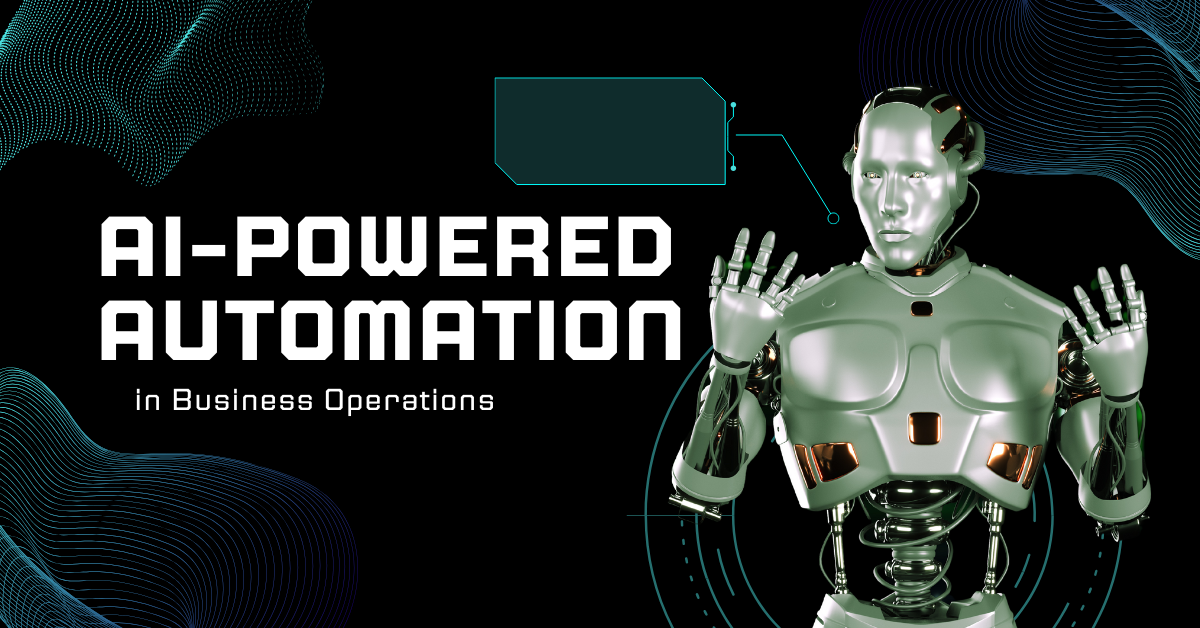Artificial Intelligence (AI) has rapidly evolved from a futuristic concept to a transformative force reshaping industries worldwide. One of the most impactful applications of AI lies in automating business operations, where AI-powered automation is revolutionizing the way companies function. By leveraging AI technologies, businesses can streamline processes, reduce costs, improve accuracy, and ultimately gain a competitive edge in the market. In this article, we’ll explore how AI-powered automation is influencing various aspects of business operations, its benefits, challenges, and the future of this trend.
What is AI-Powered Automation?
AI-powered automation refers to the integration of artificial intelligence technologies with business processes to perform tasks autonomously or with minimal human intervention. Unlike traditional automation, which relies on predefined rules, AI-driven automation uses machine learning algorithms, natural language processing (NLP), computer vision, and other AI tools to learn, adapt, and make decisions based on data.
AI-powered automation can be applied across multiple domains, such as:
- Robotic Process Automation (RPA): Automating repetitive tasks like data entry, invoicing, and report generation.
- Customer Service Automation: Using chatbots and virtual assistants to handle customer queries, complaints, and routine tasks.
- Supply Chain Optimization: Automating demand forecasting, inventory management, and logistics planning.
- Data Analysis and Decision Making: Leveraging AI to analyze large datasets, identify patterns, and make recommendations.
With these capabilities, AI is revolutionizing businesses by allowing them to operate more efficiently and with greater agility.
Key Applications of AI-Powered Automation in Business Operations
1. Automating Repetitive Tasks
Repetitive tasks are one of the biggest time sinks in any organization, and they are often error-prone when handled by humans. AI-powered automation can take over these tasks, allowing employees to focus on more strategic and creative work. For instance, Robotic Process Automation (RPA) can be used to automate mundane tasks such as data entry, payroll processing, and invoice generation. By implementing RPA with AI, companies can further enhance accuracy and efficiency, as the system can learn and improve its performance over time.
For example, many financial institutions use AI-powered automation to handle customer transactions, reconcile accounts, and manage compliance tasks. This not only reduces operational costs but also minimizes the risk of human errors.
2. Customer Service and Support
AI-powered automation is making waves in customer service by enabling businesses to provide 24/7 support without the need for a large team of customer service representatives. AI-driven chatbots and virtual assistants can answer frequently asked questions, assist customers with their issues, and even perform tasks such as booking appointments or processing returns.
These chatbots are powered by Natural Language Processing (NLP) algorithms, allowing them to understand and respond to customer queries in real time, often without the need for human intervention. This significantly reduces the burden on customer service teams and ensures that customers receive faster and more efficient service.
Companies like Amazon and Netflix use AI-powered automation to provide personalized recommendations to users, enhancing the customer experience while driving higher engagement and sales.
3. Supply Chain Management
In supply chain management, AI-powered automation is helping businesses optimize logistics, inventory, and demand forecasting. AI systems can analyze historical data, market trends, and real-time conditions to predict demand more accurately, reducing the risk of overstocking or understocking.
Additionally, AI-powered systems can optimize routing and scheduling for deliveries, taking into account variables like weather, traffic, and delivery windows. This helps companies reduce transportation costs and improve overall supply chain efficiency.
For example, Walmart uses AI to manage its vast supply chain, ensuring that products are available when and where they are needed while minimizing waste and inefficiency.
4. Data-Driven Decision Making
One of the most powerful applications of AI-powered automation is in data analysis and decision-making. Businesses today generate vast amounts of data, and AI tools can process this data much faster and more accurately than human analysts. By identifying trends, anomalies, and correlations, AI can provide actionable insights that help businesses make informed decisions.
AI-driven data analysis is especially useful in industries like finance, healthcare, and marketing, where decision-making based on real-time data can have a significant impact on outcomes. For instance, banks use AI to analyze customer behavior and detect fraudulent activities, while healthcare providers use AI to assist with diagnostics and treatment planning.
5. Human Resources and Recruitment
AI-powered automation is transforming human resources by streamlining recruitment, employee onboarding, and performance management. AI can sift through resumes, analyze candidate qualifications, and match them with job requirements more quickly and accurately than human recruiters. AI tools can also monitor employee performance, suggest training programs, and even predict when employees may be at risk of leaving.
By automating these HR processes, businesses can save time and resources while making more data-driven hiring and management decisions.
Benefits of AI-Powered Automation
1. Increased Efficiency and Productivity
AI-powered automation enables businesses to operate more efficiently by reducing the time and resources needed to complete tasks. Tasks that used to take hours can now be completed in minutes or seconds, freeing up employees to focus on more value-driven activities.
2. Cost Savings
Automating routine tasks reduces labor costs, as fewer employees are needed for repetitive tasks. AI-powered systems also tend to make fewer mistakes, which reduces the cost of errors and rework.
3. Enhanced Accuracy
AI systems can process large volumes of data with precision and accuracy, eliminating the risk of human error. This is particularly valuable in industries where mistakes can be costly or dangerous, such as finance, healthcare, and manufacturing.
4. Scalability
AI-powered automation can scale with the needs of the business. As a company grows, AI systems can handle increased workloads without requiring additional human resources. This makes it easier for businesses to scale operations without a proportional increase in costs.
5. Improved Customer Experience
AI-powered tools like chatbots and recommendation engines can provide personalized and timely service to customers, enhancing their overall experience with the brand. This can lead to higher customer satisfaction and loyalty.
Challenges of AI-Powered Automation
While AI-powered automation offers numerous benefits, it also comes with its challenges.
1. Job Displacement
One of the most significant concerns surrounding AI automation is the potential for job displacement. As AI takes over routine tasks, some jobs may become obsolete, leading to concerns about unemployment. However, many experts believe that AI will create new opportunities in areas such as AI system development, maintenance, and oversight.
2. Data Privacy and Security
AI systems rely on vast amounts of data, often including sensitive information. Ensuring that this data is secure and used responsibly is a major concern. Businesses must implement robust data security measures and comply with regulations to protect customer privacy.
3. Complexity and Cost of Implementation
Implementing AI-powered automation can be complex and expensive, particularly for small businesses. The initial investment in AI technology, training, and infrastructure can be a barrier to entry for some companies. However, as AI technology continues to evolve and become more accessible, these costs are expected to decrease.
The Future of AI-Powered Automation in Business
The future of AI-powered automation is incredibly promising. As AI technologies continue to evolve, we can expect even more advanced applications in business operations. AI systems will become more intuitive, autonomous, and capable of handling increasingly complex tasks.
In the coming years, we will likely see AI-powered automation expand into new areas such as marketing, research and development, and strategic decision-making. AI will not only automate routine tasks but also play a critical role in driving innovation and creating new business models.
Conclusion
AI-powered automation is transforming business operations across industries, offering unprecedented opportunities for efficiency, cost savings, and innovation. By automating routine tasks, optimizing processes, and enhancing decision-making, AI is helping businesses gain a competitive advantage in today’s fast-paced market. While challenges such as job displacement and data security remain, the benefits of AI-powered automation are undeniable, making it a key driver of future business success.


